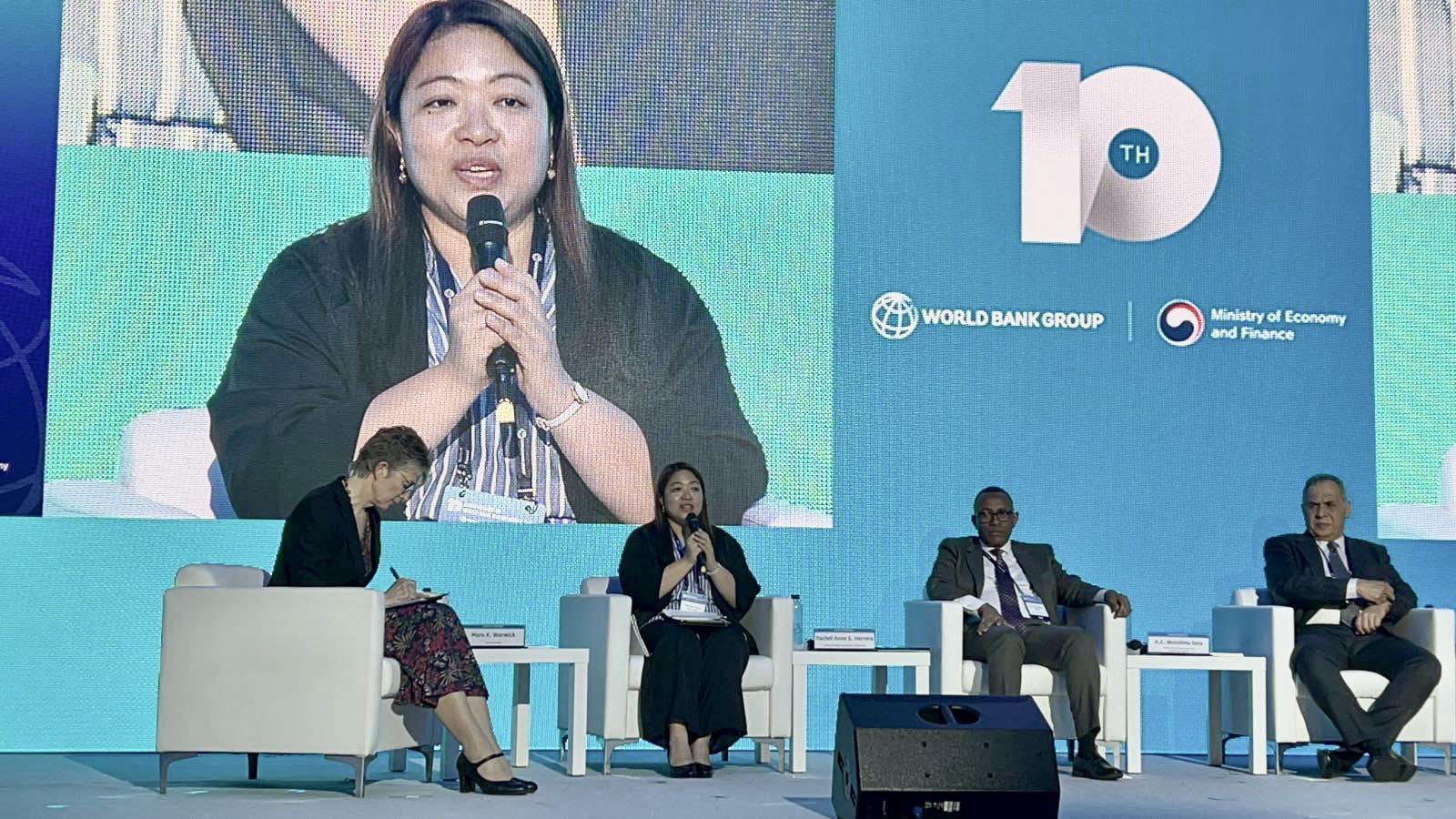
June 13, 2023 Tuesday

CCC Commissioner Rachel Anne S. Herrera joins the 10th anniversary event of the World Bank Group in Seoul, South Korea
SEOUL, SOUTH KOREA, 13 June 2023 — The Climate Change Commission (CCC) lauded the Republic of Korea (ROK) as a valuable partner of the Philippines in building climate resilience and advancing sustainability and circular economy, during the 10th Anniversary Event: “A Decade of Innovation” of the World Bank (WB) Group Korea Office.
CCC Commissioner Rachel Anne S. Herrera said that Korea has provided not only timely aid during disasters, such as in the oil spill in Oriental Mindoro in February of this year, but has been a key partner in advancing the work to improve policies against plastics pollution.
“One year ago, the Philippines enacted a law on Extended Producer Responsibility (EPR), amending our two-decade-old waste management act. We see this as a crucial means to integrate the role of the private sector in waste management and to make all stakeholders more involved in managing the plastic crisis. Overall, this is also to promote a fair system because we know that the waste crisis does not fall on the plate of the government alone, but also on the private sector and informal sector,” Herrera said.
“In this aspect, we look forward to the capacity building program on EPR from policy analysis to application of best practices, through the support of the World Bank and the Korea Green Growth Trust Fund, in order to address two decades of policy and implementation gaps,” she added.
Herrera noted that the World Bank is also assisting the Philippines to develop a roadmap on zero single-use plastics, producing at least five reports and rigorous analysis of solid waste management data and effectiveness of existing policies.
She also said that the EPR system is an important transitional policy mechanism, but the end goal is phasing out single-use plastics. She mentioned the World Bank’s newly launched study, “Distributional Impacts of Plastic Policies in the Philippines,” which provides insights and analysis on the impacts of phasing out or regulating single-use plastics to low income, marginalized communities.
“Learning from this cooperation, we know that we can empower communities if we engage and provide them the necessary data that they can work with to influence local policy and planning, while respecting local culture and heritage and opening more access to economic opportunities. The Philippines looks to Korea, its good neighbor, to strengthen resilient growth and circular economy aspirations,” Herrera concluded.
Secretary Ivan John Uy of the Department of Information and Communications Technology (DICT) delivered the keynote speech during the event and noted how the Philippines wishes to emulate Korea’s best practices in technology and innovation to transform our country into a world-class economy.
“The Philippines’ DICT is at the forefront of transforming the Philippine bureaucracy to e-governance initiatives, bridging the digital divide by providing digital connectivity across our archipelago backed up by a robust digital infra network and providing ICT competency, upskilling and reskilling opportunities to nurture a growing and a very young, competitive ICT workforce,” said Uy, who added that the Philippine digital economy would be able to generate an estimated US$25 billion in revenues in a couple of years through e-governance initiatives.
For more information on the Climate Change Commission’s climate mainstreaming activities, visit https://climate.gov.ph and www.facebook.com/cccphl.